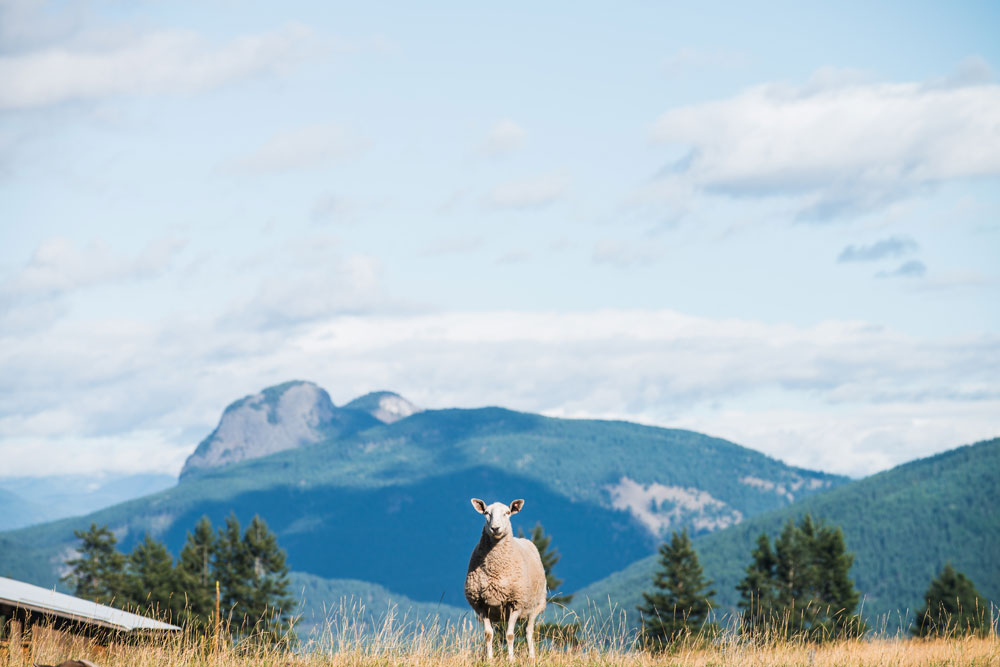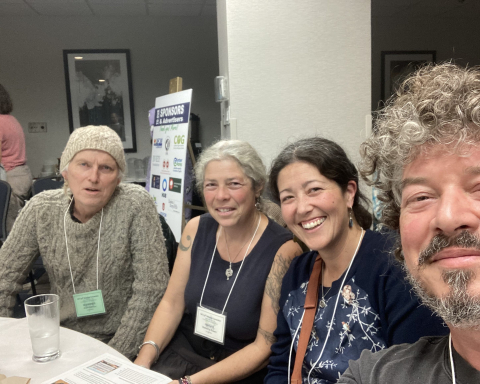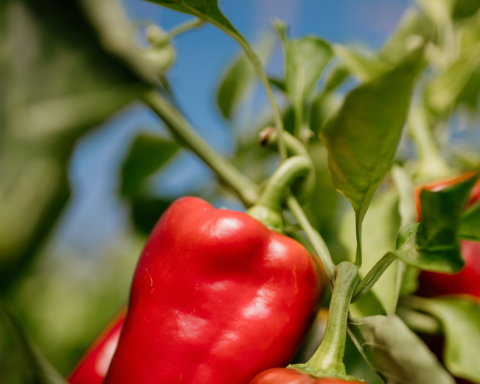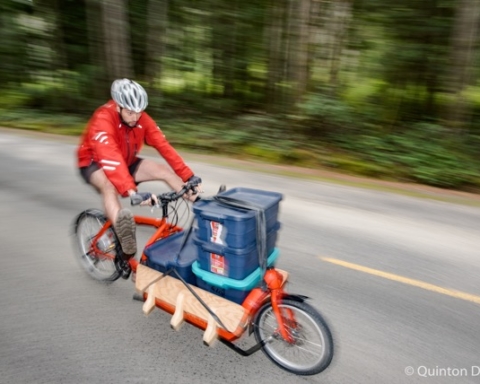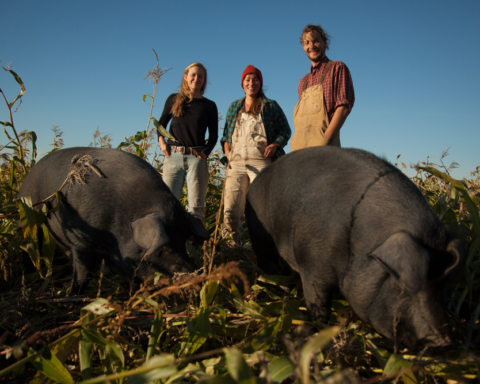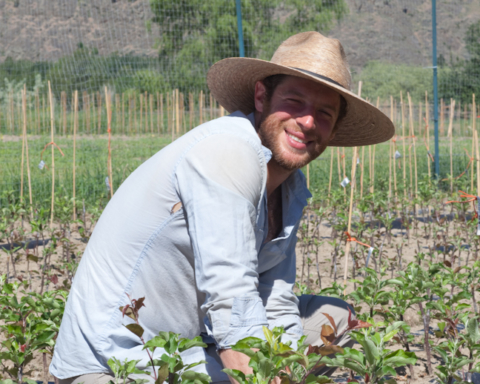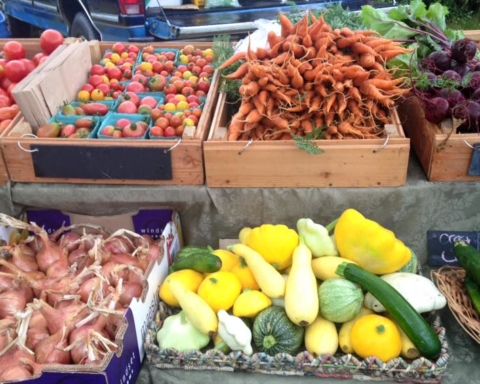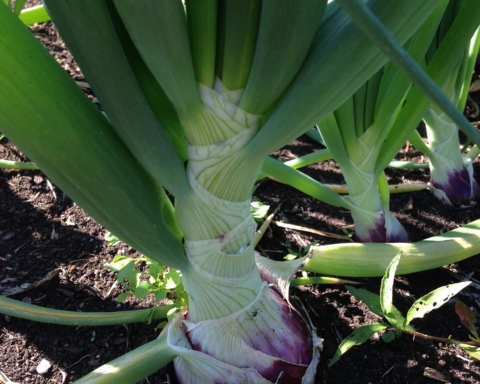Eva-Lena Lang
Growing up on a family farm in the Mabel Lake Valley, in the North Okanagan, I experienced the many rewards and challenges that farmers can face. I left the region for several years, but whenever I returned for visits, I would notice new struggles confronting the farming community. Certain challenges stand out in my memory: the BSE or “mad cow disease” crisis in 2003, BC’s enactment of the new Meat Inspection Regulation, which came into effect in 2007, other policy and regulation issues, the impact of droughts and wildfires, and more.
I moved back to the North Okanagan in 2015 to work with COABC, with the hope of returning to farming as well as putting roots back down in the wider community. I became concerned about the long term health and sustainability of our communities, which have become increasingly disconnected from their farmers. I believed there was a need to rebuild the relationships between not only the farmers and their communities, but between all the different components of the regional food system: from farmers, to processors, distributors, retailers, chefs, and ultimately, consumers.
In 2015 I was taking a course in a community economic development (CED) program through SFU. I had learned about the concept of collective impact: “the commitment of a group of actors from different sectors to a common agenda for solving a specific social problem.” Collective impact follows five conditions: providing backbone support, facilitating communication, identifying a common agenda, embarking upon mutually reinforcing activities, and monitoring success (Kania & Kramer, 2011).
I also learned about the Farm to Plate (F2P) Network in Vermont, which has been one of the most impressive examples of how to successfully apply the collective impact approach to make a “viable, sustainable, and resilient food system.” The Vermont F2P Network is an inspiring example of how a collective impact network has transformed Vermont’s food system, resulting in significant improvements over 10 years (2003-2013). Notable improvements include doubling local food production, increasing local food jobs by 10% and businesses by 15%, halting land loss in agriculture, and improving access to healthy food for all Vermonters.
Gathering around a kitchen table, a few community members and I, all food systems experts as well as from farming families in the region, discussed the Vermont F2P Network for one of my CED projects. We ended the discussion with the decision that it could, and should, happen in the North Okanagan.
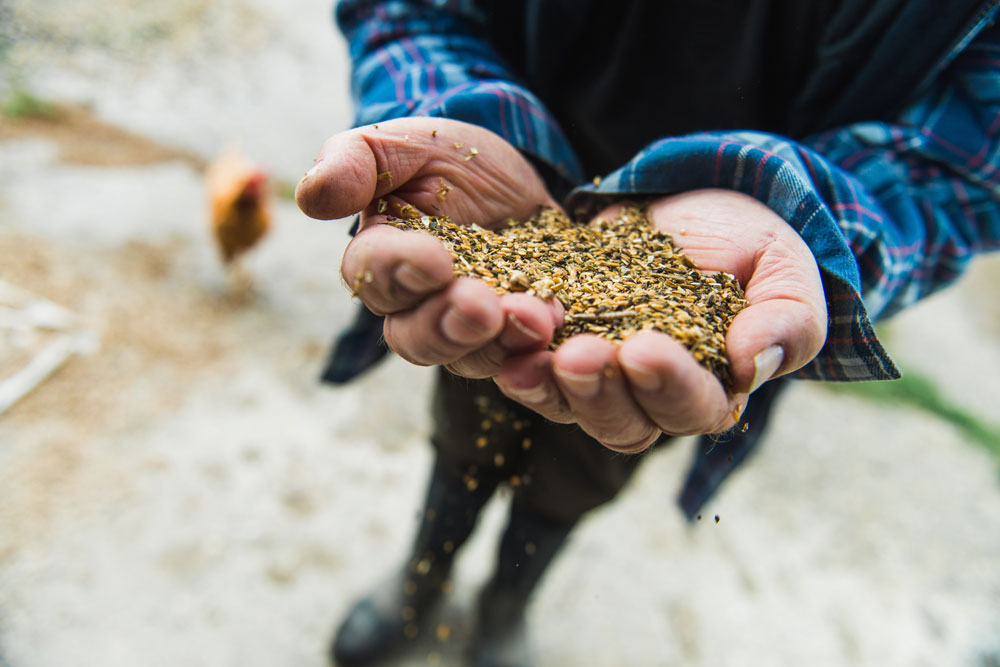
In November 2016 we convened a meeting of 15 key North Okanagan food system stakeholders, to discuss the potential and explore the interest for building the region’s food system through collective impact. Recommendations from the November meeting led to the following actions in 2017:
- We formed a working committee, under the guidance of the above stakeholders
- We selected Community Futures as our host organization
- We created a background report compiling and summarizing the recommendations of agriculture, food system, and food security plans that have been generated in the region over the past 10 years. This report was completed in December 2017 and was useful in planning a forum the following year.
- We hosted a forum in January of 2018, titled “Growing the Local Food Economy in the North Okanagan”.
The forum began with our keynote speaker, Curtis Ogden of the Interaction Institute for Social Change in Boston, USA, presenting his work on regional food systems in Northwestern USA, including on the VF2PN. In particular, Curtis talked about the importance of working through networks, building authentic connection and increasing capacity, leading to increased strengths. Networks are beneficial as they produce outcomes through collaboration that organizations may not produce on their own.
The forum was attended by 85 participants, including the direct food system stakeholders, as well as supporting members from government, non-profit, and academic organizations. We presented the opportunities, challenges and recommended actions from the background report and used this as the basis for discussion in the forum working groups (i.e. Sustain Farmers, Support Processors, Develop the Middle, Engage Consumers, and Build the Network). Through conversations, each working group determined their priorities for short, medium, and long term actions focused on growing the local food economy.
The conversations at the forum were incredibly important and filled with great ideas for action. It was becoming apparent to us, however, that the best way to make these actions happen was through the development of a well connected, aligned, and coordinated network in the North Okanagan, operating through a collective impact approach. Since the forum, we have continued to ride the momentum, working on two parallel efforts: 1. Following up on the priority actions determined at the forum, and 2. Building a collective impact network across the food system, called the North Okanagan Food System Initiative (NOFSI) Network.
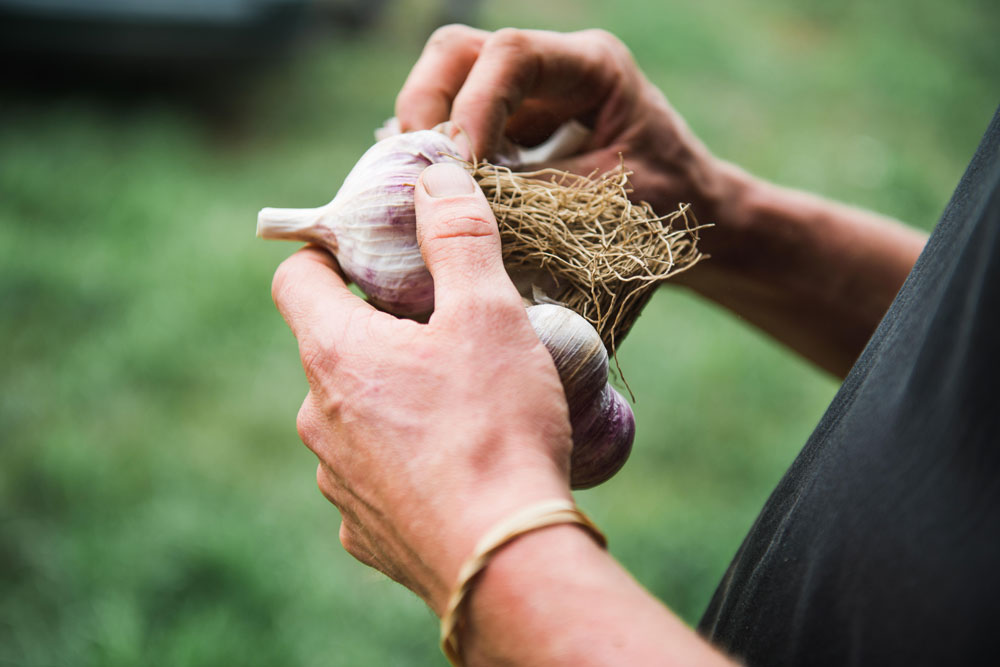
The interim vision of NOFSI is a regional food system where farmland is protected and productive, farmers have access to land, regional farms and other food system enterprises are thriving, our food system is environmentally sustainable and resilient to climate change, more local food is produced and sold, and everyone has access to healthy good food. The goal of the North Okanagan Food System Initiative is to develop a collective impact network to achieve this vision.
NOFSI consists of a steering committee, a newly hired coordinator, and a network of food system stakeholders. Community Futures North Okanagan (CFNO) continues to act as our host organization. Currently, steering committee members represent key partner organizations such as Interior Health (IH), BC Ministry of Agriculture, University of British Columbia, Okanagan campus (UBCO), Food Action Society North Okanagan (FASNO), and the Regional District of North Okanagan (RDNO).
In May and June 2018, Liz Blakeway, the NOFSI coordinator, convened four working group meetings to follow up on the priority actions identified at the January forum. In the second half of these meetings, I facilitated a network mapping exercise to depict the current state of food system network in the North Okanagan. I also convened an overarching working group (the former Build the Network working group from the forum) to map, analyze, and make recommendations for building the NOFSI network. This work is a part of my Masters research at the University of British Columbia Okanagan, working closely with supervisors Mary Stockdale and Jon Corbett as well as other expert advisors from the community.
- The information obtained from this research and the priority actions identified at the follow up meetings will inform our transition to the next phase of our initiative. Starting in September, and with funding from the Real Estate Foundation as well as the Regional District of the North Okanagan, NOFSI will be working on:
- Organizing annual forums and completing follow-up actions that focus on the following themes:
Growing the local food economy (this is underway, beginning at the January 2018 forum); - Promoting environmental sustainability across the food system (to begin at the planned January 2019 forum); and
- Securing access to healthy local food (anticipated to begin at a January 2020 forum).
- Organizing annual forums and completing follow-up actions that focus on the following themes:
- Building a network that functions to support and facilitate setting a shared agenda, initiates constructive communication, coordinates and supports working groups, and creates an environment that builds trust, alignment, and the ability to collaborate effectively.
During the first study group meeting in 2015, I discovered that there are other people in the North Okanagan who share my values and my understanding of what needs to be done to support a stronger regional food system. The conversation has continued, and it has been incredibly inspiring to see more and more passionate individuals became involved, building the momentum to implement this idea.
Each NOFSI member has their own story and reason as to why they want to see change. Many individuals who recognize the strong potential for profitable, diversified agricultural production in the North Okanagan, also want to support sustainable agriculture, the successful entrance of young farmers, and improved access to healthy local food for all our citizens. The success to date has been due to the commitment of members actively engaging in the network and a few very committed individuals putting countless hours of work into the development of NOFSI.
My study circle conversation in 2015 was a small way to try to make change happen, but it was a start. Inspired by Vermont’s story, I continue to believe that we can make collective impact happen here, with the “collective” being our NOFSI network, and the “impact,” a regional food system that is economically prosperous, environmentally sustainable, and socially accessible to all.
Eva-Lena Lang grew up on a family farm, and has farmed all around the world. She is currently pursuing a Masters at UBCO to further her capacity to support the regional food system and small-scale farmers. Before starting her Master’s, she worked with the Certified Organic Associations of BC.
Photos by Maylies Lang.


